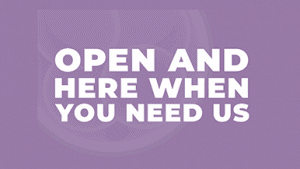 We are defined by the choices we make and by our outlook on life. All of us begin with dreams of our ideal existence, but invariably, adjustments will be necessary. Whether you support a fatalist philosophy, and/or you follow God’s plan, one thing is certain – life rarely complies with our original design.
We are defined by the choices we make and by our outlook on life. All of us begin with dreams of our ideal existence, but invariably, adjustments will be necessary. Whether you support a fatalist philosophy, and/or you follow God’s plan, one thing is certain – life rarely complies with our original design.
Ironically, often the significant challenges for infertility patients to overcome is not the decision of which treatment option to pursue, or even the mounting expense of tests and therapy.
Obstacles
The major obstacles are often dealing with the feelings of shame and failure. Of all the medical diseases, with their associated treatment, infertility patients’ responses to their diagnosis contradicts all other medical approaches to resolution. Imagine a newly diagnosed cancer patient internally bargaining to avoid surgery, chemotherapy and/or radiation determined to heal naturally despite a dismal prognosis. Yet, many infertility patients reject or delay medical assistance for just this same reason.
Initiation of Infertility
Why is it that the initiation of infertility treatment invokes the sense of defeat in hopeful parents? Certainly this reaction is inappropriate, but also unfair to the patient who is already enduring the emotional devastation of infertility and fearing a life of being childless. Along with a feeling of failure, shame can paralyze and sabotage the path toward fertility. It can also be responsible for clandestine visits to the infertility specialist to withhold the struggle from even the closest family and friends.
As difficult as infertility treatments may be on the patient, alternative options such as the donation of eggs, sperm, embryos, and/or the process of adoption can be a psychological apocalypse by adding one further fear: the loss of anonymity. Specifically, the egg/sperm/embryo donor may want to contact the child one day, or the child will pursue their genetic roots. Fortunately, the former is protected by legal contracts and predetermined arrangements. The latter, while inducing panic in the intended parent, is a natural curiosity reflected by the popularity and number of lineage resources on the internet. Most important, a child pursuing their genetic history is not usually an act towards replacing their true parent(s); biology cannot negate years of nurturing, love, and commitment.
 Recently, a delightful couple for which I have been privileged to care, requested I withhold their use of egg donation to their Obstetrician. My reply was reassuring; I would never reveal their treatment option without their approval. There was one problem, her advanced reproductive age would compel her physician to strongly recommend testing for chromosomal abnormalities, such as Down’s Syndrome. Of course the patient could refuse testing, but there was a more important reason she offered for her request – “I don’t want anyone to know it’s not a part of me.”
Recently, a delightful couple for which I have been privileged to care, requested I withhold their use of egg donation to their Obstetrician. My reply was reassuring; I would never reveal their treatment option without their approval. There was one problem, her advanced reproductive age would compel her physician to strongly recommend testing for chromosomal abnormalities, such as Down’s Syndrome. Of course the patient could refuse testing, but there was a more important reason she offered for her request – “I don’t want anyone to know it’s not a part of me.”
We had just completed her embryo transfer and her words resonated throughout the procedure room transforming silence to a distracting noise. Momentarily at a loss, I asked if I could share my thoughts. The room was quiet except for our traditional Enya music in the background. As I struggled to find a sensitive approach employing science, psychology and autonomy, I was quickly and thankfully reminded her story was my story too.
Being raised in a northern New Jersey close-knit Italian circle, I learned and appreciated the importance of family. So when infertility struck me, I experienced a myriad of confusing and overwhelming emotions. Following 10 years of testing, treatment, and complications, we resolved our infertility through the blessing of adoption. Why 10 years? – because our natural desire was not being realized and we foolishly endured years of struggle all for biology.
Biology
It comes as no astonishment that parents generally have little difficulty loving their biologically related children. After all, how unlikely is it to love a true part of you? Not because biologic parents are narcissists, rather they take enormous pleasure in the accomplishment of creating life through union with their soulmate. Hence, the hurdle of accepting an alternative path to the original plan.
But what is biology? We accept the physical similarities biologic children have with their parents as ingratiating. All children also inherit genetic risks of disease including cancer, diabetes, and cardiovascular problems. Of importance, there is no definitive certainty children will be endowed with the special talents or traits of their biologic parents. After all, do any of us recall Einstein’s, Da Vinci’s, or Pavarotti’s offspring following in the greatness of their eternally renowned parent?
Remarkably, our emerging knowledge of epigenetics allows a biologic phenomenon, namely environmental factors turning our genes on or off. As a consequence, nurture meets nature in facilitating the potential genetic influence of adoptive parents allowing their non-biologically related children to inherit certain familial traits.
The gift of life presents in many forms. When an infertility patient heroically turns to alternative options of family building, they dedicate themselves to the purest form of human behavior, i.e. loving for the sake of love without genetic strings. Neither shame nor sneaking into fertility clinics should ever be caused by this magnanimous and beneficent act of courage. Rather, the new parent can confidently relish in the adjustment of their plan while experiencing all the joy, fulfillment and love that having a child offers.
“It’s not a part of me”? Actually, all parents may find comfort in one other inspiring tenet, ” children do not belong to their parents, they belong to themselves.”
We are Central Florida’s most successful IVF Program.
To learn more about our work, please schedule your consultation or join the conversation on Facebook and Twitter.






